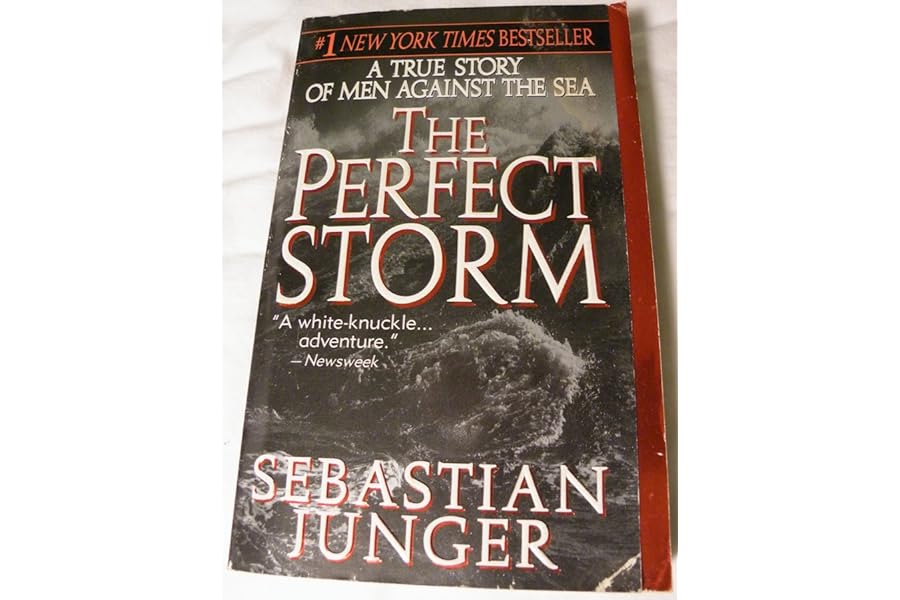One sentence summary:
‘The Perfect Storm’ is a non-fiction book that tells the dramatic and harrowing true story of a group of fishermen who were caught in a deadly storm while at sea.
Book genre:
Non-fiction, survival tale, adventure, tragedy
Main topic of the book:
The main topic of the book is the catastrophic and fatal ‘perfect storm’ that occurred in the North Atlantic in 1991 and the lives of the crew members of the fishing vessel Andrea Gail who were caught in its path.
Key ideas:
- The unpredictability and power of nature
- The courage and bravery of those who face extreme conditions
- The sacrifices and risks that fishermen take to make a living
- The bonds and camaraderie among crew members on a fishing vessel
- The impact of climate and weather patterns on the fishing industry
Main parts of the book and a short summary:
Part 1: The Port
The book begins by introducing the characters and setting the scene in the small fishing town of Gloucester, Massachusetts. The author, Sebastian Junger, describes the tough and dangerous lives of the fishermen and the risks they take to make a living. He also delves into the history and culture of the fishing industry in Gloucester.
Part 2: The Sea
In this part, Junger gives an overview of fishing and weather patterns in the North Atlantic and the forecast for the ‘perfect storm’. He also introduces the crew of the Andrea Gail and their journey out to sea.
Part 3: The Rescue
As the storm intensifies, the Andrea Gail is hit with huge waves and harsh conditions. Meanwhile, on land, the Coast Guard begins their rescue mission to save the crew. Junger vividly describes the harrowing experiences of both the fishermen and the rescuers.
Part 4: The Siren Song
In the fourth and final part of the book, Junger explores the aftermath of the storm and the impact it had on the people of Gloucester. He also delves into the theories and debates surrounding the disappearance of the Andrea Gail and its crew.
Key takeaways:
- Nature is powerful and unpredictable, and we must respect its force.
- People are capable of immense courage and bravery when faced with extreme conditions.
- Fishing is a dangerous and challenging occupation that requires sacrifices and risks.
- Extreme weather patterns can have a significant impact on industries, communities, and individuals.
Author’s background and qualifications:
Sebastian Junger is an American journalist, author, and filmmaker. He has written for numerous publications, including The New York Times, and has also directed several documentaries. Junger has a deep interest in human behavior and has covered a wide range of topics, including war, disasters, and survival.
Target audience:
The target audience for this book is readers who are interested in extreme weather, survival stories, adventure, and human behavior. It may also appeal to those interested in the fishing industry and the lives of fishermen.
Publisher and first publication date:
W.W. Norton & Company; 1997.

